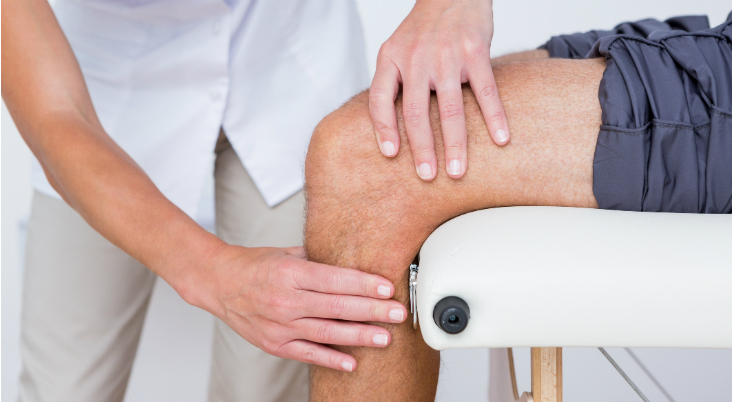
Over the years, an increase in life expectancy has resulted into increased elderly population. Age and pain goes hand in hand, so does the risk of progressively painful health conditions. Senior citizens today lead an active lifestyle. Some of them are compelled or otherwise even continue to earn a living well beyond the age when people retire. Nuclear families are becoming the norm and more and more elderly people live on their own. They have little support and often need to be healthy enough to continue to look after themselves, and sometimes their dependents.
 Non-surgical measures have advanced and can combat the problem amongst majority of the population. However, some people have severe arthritic knees or hips. These patients cannot often be managed without an operation. Surgical techniques have been developed over the last six decades with great success. Advanced techniques today allow less painful, quicker and more precise surgery. Pain control techniques can completely eliminate discomfort immediately after surgery. Hospital stay has gone down to a bare minimum, and recovery is quick with advanced rehabilitation. Despite all these advancements, older people still suffer pain and debility, even at the risk of complete dependence but are hesitant to undergo knee and hip replacement surgery!
Non-surgical measures have advanced and can combat the problem amongst majority of the population. However, some people have severe arthritic knees or hips. These patients cannot often be managed without an operation. Surgical techniques have been developed over the last six decades with great success. Advanced techniques today allow less painful, quicker and more precise surgery. Pain control techniques can completely eliminate discomfort immediately after surgery. Hospital stay has gone down to a bare minimum, and recovery is quick with advanced rehabilitation. Despite all these advancements, older people still suffer pain and debility, even at the risk of complete dependence but are hesitant to undergo knee and hip replacement surgery!

Here are some myths you should know the facts about; these will help you make the right decision for yourself, your parents or for your grandparents.
Myth 1: Joint replacement surgeries are painful, post-operatively; painkillers have to be consumed every day
Fact-Today, anaesthesia and pain control techniques can allow a painless experience during operation & near painlessness in the post-operative period. The specialised techniques of tissue preserving surgery also help. Rehabilitation is therefore rapid, and patients can walk soon after operation. Stair climbing is also possible post operatively, depending on the patients’ fitness levels

Myth 2: You are too old for the surgery; it will not help improve the quality of your life
Fact- Surgery brings value and is successful even in older patients, if they are physiologically well and limited mainly by the arthritis. Yes, earlier done the better, but if physiology is good, surgery can be successfully done in older patients
Myth 3: You will never get back to normalcy after a joint replacement surgery
Fact- Joint replacement is like replacing the worn-out tyres of a car, which is otherwise fine. Done at the right time, it gives excellent results and brings the patient back to original levels of activity. Newer techniques and advanced implants have brought function after joint replacement to near natural
Myth 4: If you have severe hip arthritis, you are not a candidate for a hip replacement
Fact- Advanced techniques allow satisfactory reconstruction of even the most severely damaged hips.
Myth 5: Post-op, walkers and walking sticks will have to be used permanently
Fact- Walking aids may be needed initially, depending on the overall health status of the patient. In most cases these are primarily for balance and not because the new joint cannot take the load. With recovery, most patients will give up all aid, provided they are otherwise healthy.
Myth 6: Advanced age will delay recovery, so if you’re above 80yrs of age, chances are recovery from the surgery is low
Fact– The physiologic age and health status of the patient is more important than the numerical age. A very old individual may be fitter than a younger one and more suitable for an operation. If a person is limited by a bad joint and everything else is reasonable, then there is no reason why he or she will not benefit from a joint replacement surgery. Detailed evaluation will be done by your surgeon to ascertain this aspect prior to surgery
Myth 7: If you suffer from Diabetes, Hypertension, history of cardiac arrests, you are not a candidate for joint replacement surgery
Fact- Diabetes and Hypertension do not rule out joint replacement. They can be controlled and health optimised for a good result. These surgeries can be done safely at any time of the year with good results, provided, good infection control policies and systems are in place.
Myth 8: Opting for the home or natural remedies is a better option over replacement surgery
Fact- Home remedies may certainly allow you to cope better with the problems of Arthritis by reducing pain and discomfort. They will however not correct the mechanical problem in the joint. The joint is mechanically deranged and needs repair, which can only be done by surgery. In early stages, natural and home remedies may be acceptable but will do no good in the late and severely damaged joint.
(Writer is Dr Kaushal Malhan, Senior Knee and Hip Surgeon at Fortis Hospital, Mulund. Views expressed are personal opinion.)
Also Read: Joint replacement surgery becomes less invasive and precise
Be a part of Elets Collaborative Initiatives. Join Us for Upcoming Events and explore business opportunities. Like us on Facebook , connect with us on LinkedIn and follow us on Twitter , Instagram.












